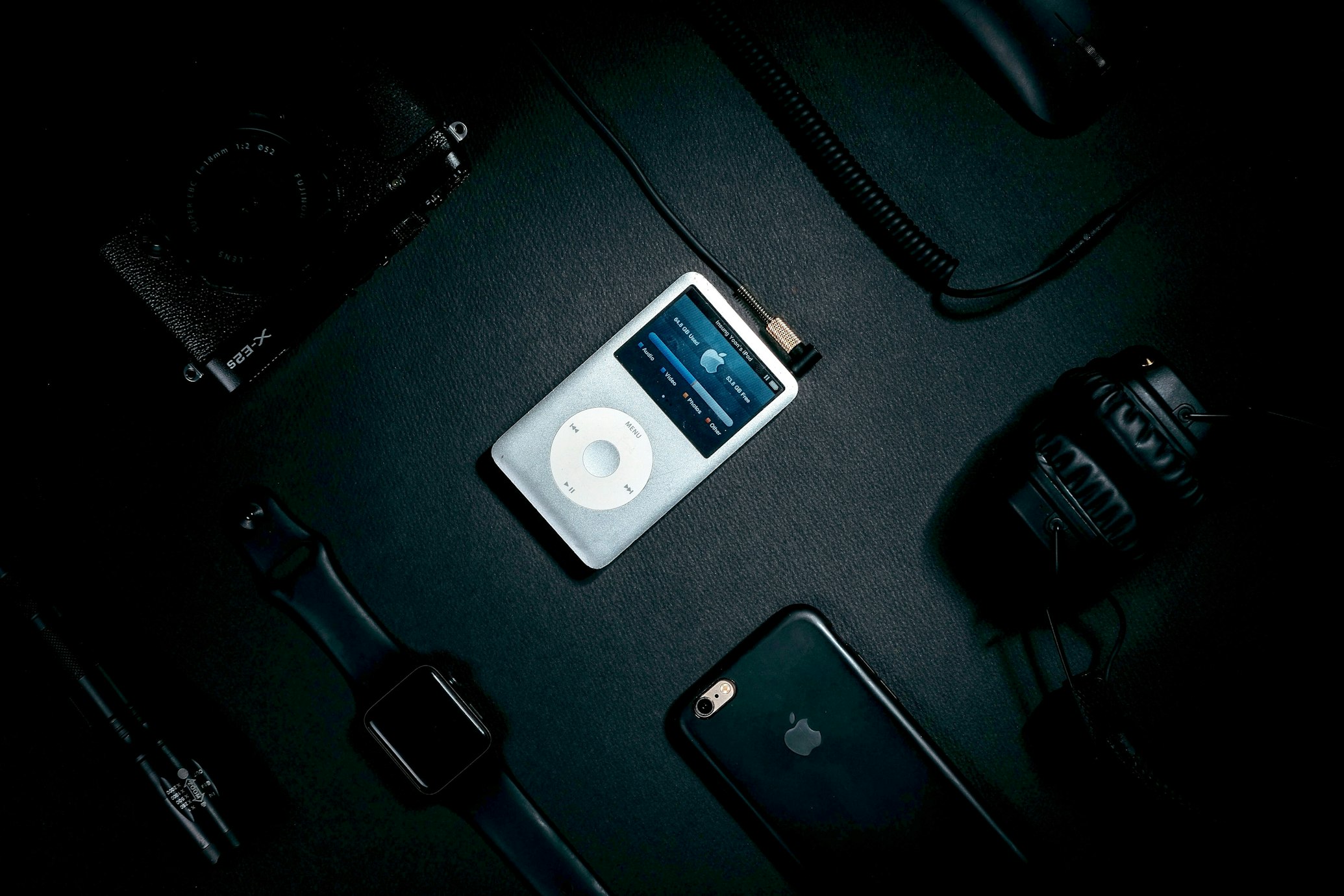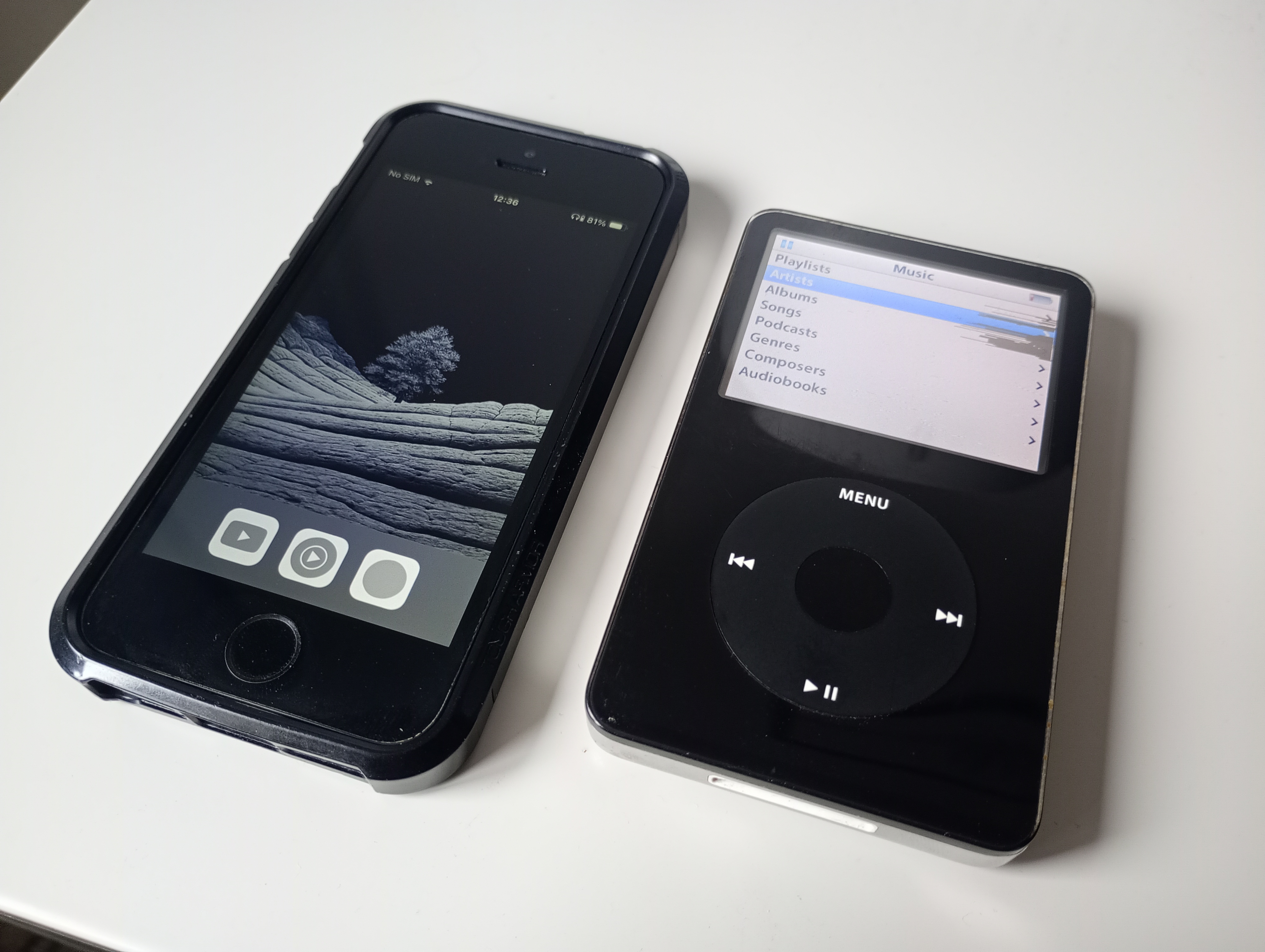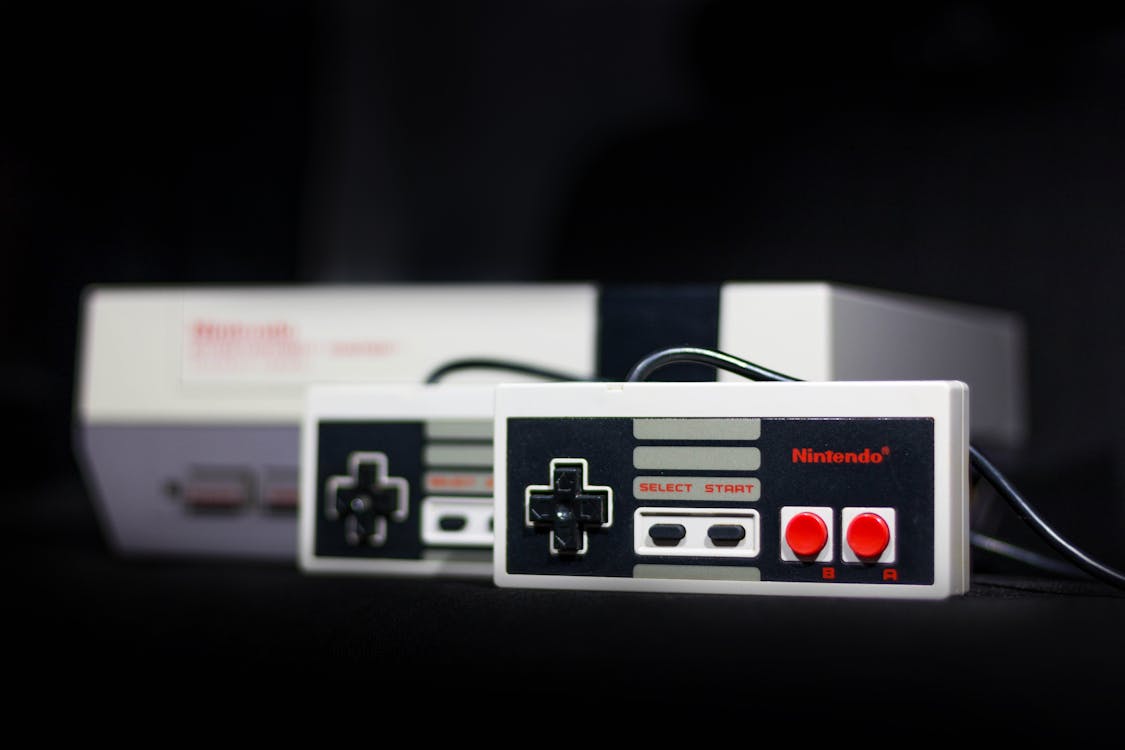Reflections on digital streaming and reducing smartphone usage

This articles covers some of the thoughts and steps I've taken to redefine my relationship with my smartphone, streaming and modern tech devices, using some nostalgic tactics.
What is the problem with smartphones?
Smartphones and modern tech devices seemingly offer everything we could possibly need in a single device. They appear to be the perfect multi-tool. Is it a surprise we all seem to be addicted to them? Is that good for us?
I wasn't really an avid user to begin with, I don't use social media and yet still I found myself using my smartphone far too much. Checking the bank account, watching a how-to video, making a note, researching directions, looking up some information, streaming and listening to music. The heating system can be controlled via an app, the CCTV cameras can be viewed on an app... Almost everything and everyone is connected.
This is all super convinient but lately I've felt I / we spend far too much time on these devices, and with technology in general. It's verging on a minor addiction, like the compulsive checking of your phone even though you know there won't be any notifications - or none that you're interested in anyway! Could it be that hyper-convience is actually bad for us? I am starting to think so.
Dopamine (the feel good chemical) is released not for the reward itself, but in ancipation of the reward. This means even being in the presence of a smartphone is like having constant access to a metaphorical slot machine, it might have us on edge constantly thinking things like:
- Can I find any new information?
- Should I make a note of that?
- What's my bank balance?
- I should look up directions to that place.
- ... and many more
All of this seems to be affecting our concentration and attention spans. If early modern humans have survived for ~300,000 years without smartphones, why since 2007 and the first iPhone do we need them so much?
What are the solutions to this problem?
I watched a few videos and lectures on solutions to this attention addiction problem. I am not against smartphones they are great devices that help us, but there are many dangers too which can lead to bigger issues like anxiety, depression, insomnia and more. Here are the options I gathered:
- Live without a smartphone - radical and difficult in a world built for smartphones with things like QR codes, medical apps, online government services and so on.
- Confront and redefine your relationship with them - acknowledge it is an issue and work towards improving it using intentional app time limits, using only a few apps etc.
- Learn to look up again - use tactics to help you manage your relationship so put it away during social situations, ask others to put theirs away, don't sleep with or near your phone, and turn off notifications.
Now for my own reflections and tactics on how to reduce smartphone and redefine your relationship with them, tech usage and streaming. The results being a healthier, happier relationship with technology where you are more in control.
Reset expectations
I think technological progress is great, but it can be harmful. I think around 2005 was a sweet spot for technology use in that:
- Landlines frequently used
- Texting frequently used, picture messaging less so - also much harder to text on 'dumb' phones
- Computers and laptops were bulky, slower but did the job
- Internet was available albeit much slower, more viruses, less sophisticated, but felt more free and open
- Films were on DVD, options were buying or renting from Blockbuster (not sure when Blockbuster collapsed) or for some they were downloaded via piracy - resulting in this classic ad.
- Music albums were released to CD, played on portable CD players or ripped to PC and then stored on iPods / MP3 players
- To find new music and artists you checked out Last.fm
- YouTube launched February 2005
- Facebook launched 2004, before that is was Myspace, Bebo which weren't really as widely adopted
- Endless scrolling didn't really exist in the same way it does now
So this world didn't include smartphones, and yes things were more inconvenient as a result nevertheless, it still worked. It still had everything we have now more or less.
Now I'm not advocating we go back to these times, but we can certainly learn from them, reflect on what we've gained and what we've lost. Use some of those reflections to improve lives in this hyper-connected attention-seeking world.
Here we go...
Use it like a tool (or a landline)
Smartphones are great multi-purpose tools, and that is part of the problem! One thing I've done to use it more like a tool is to use an app called minimalist phone for Android. I think there is an equivalent for iPhone too.
It's great for keeping the phone semi-dumb and highlighting only the apps you really need while keeping some tucked away out of view just in case you need them occasionally. The best part for me is that at the time of writing there is a one-time purchase available instead of monthly / yearly! I hope this never changes.
You can see in the image below I keep a few select apps on the front page. You can rename apps to keep things really simple, I renamed...
- YouTube Music to Music
- Kindle to Books
- YouTube to Videos
If you designate an app it will prompt you how long you want to spend on that app. Swiping right gives you a search bar to find your tucked away apps which I have added to folders. You can also 'hide' apps totally stashing them away and out of view completely. Once your time is up you get a prompt to 'Take me out of here' or continue with 'More time'. It's a super helpful interface.
Some other helpful things were:
- Keep your smartphone in the same location - on a window sill so you have to physically go to it the same as a landline. When you're done, put it back. This keeps you distanced physically and mentally.
- When you have a question you want to ask Google, ask yourself first, try to figure it out, use that gift of a brain! Pretend Google doesn't exist, how would you work it out? How would you find that information?
- Removing all social media apps - stick to text and WhatsApp to message people or call them.
- Pretend it's a single use device - if you're listening to music, only do that, no app switching, this requires lots of willpower!
- Try using colour contrast mode to turn the display black and white - much less distracting
- If you're not using a minimalist phone app clean up those apps, get rid of the unused and hide the infrequent ones, reduce to the essential tools
Enjoy single use devices to prevent multi-tasking
My single device hacks to reduce reliance on streaming and to prevent multi-tasking are:
- A 2TB Toshiba external hard drive to play movies directly on TV or Xbox
- A 5th Gen iPod 60GB which I modded with a 256GB SD card and bigger battery for offline listening plus a Bluetooth adapter. I got this from eBay for £33 in great condition, even with songs loaded from the seller! Best purchase in ages. Only a small section of dead pixels on the screen.
- An old iPhone SE no SIM card to use just for music - YouTube Music + YouTube background play
- JBL Charge 5 - great portable Bluetooth speaker with good battery life if you can find one on offer
These make my smartphone optional and it can be left alone sitting on the window sill, it makes me use the smartphone more like a desktop PC - I go to it, do what I need to do then leave it alone.
These also make streaming somewhat optional, it means I could unsubscribe to most media streaming services and still be entertained and would have only what I love and treasure.
It took effort to hunt down those movies and albums - again the anticipation of the reward is greater than the reward itself! Some effort and inconvience ensures the reward is appreciated even more.
It wasn’t mindless scrolling to hunt for them either, it was active searching, thinking, reflecting. It slowed down consumption. One you've acquired them they are yours, no one can take them away from you.
If you were lost in the jungle and had to eat anything to survive, your favourite food on return to civilisation would be the finest food you've ever tasted, and you would appreciate every bit of it. Struggle isn't always nice, but some struggle is a good thing - it makes us appreciate what we have instead of worrying other options might be better.
There are lots of good ideas on how to introduce some struggle into your life like using an iPod to listen to music alongside or instead of streaming.
The thing about streaming music, is that there isn't really a way to do it without a smartphone. They tend to go hand-in-hand. I think having a device dedicated to music is a special thing, even if like me, that's just an old iPhone SE used solely for music. It's the perfect size for this purpose and after finding a new battery for it and fitting it it goes for days. I keep the display black and white and only use YouTube Music, Headspace and YouTube for background listening with this device.
If I want to go totally offline I've been building a good music library to load onto an iPod 5th Generation (A1136) modded with an iFlash Quad and 256GB SD card, along with 3000mAH battery giving days upon days of usage. You can find great guides to do this on YouTube from DankPods and others.
The 5th Gen iPod seems the easiest to open up, whereas the 6th and 7th Gen have fully metal cases so much harder. Plus the 6th Gen has a limit of 128GB when flash modded, whereas the 5th and 7th Gen have no limit up to 1TB - not that I've ever tested that, 256GB is more than enough.
List your top tens for entertainment
If you could only watch / listen to 10 movies, documentaries and artists ever again, what would they be?
Collate your own library of top 10’s whether that be MP3s, CDs, DVDs, or files. I lived during the times of piracy where streaming wasn’t an option and individual items were expensive. The price of a CD album can now get your a monthly subscription to most of the songs ever created! I’m not an expert on the economics of streaming, but however slim, there is a chance of returning to a world one day of ‘if you like it, then buy it’. I mean if they don’t pay artists enough it’s not unfeasible. I’m not sure, that’s another topic though for someone else to debate.
Maybe use the money you spend on streaming to acquire your favourite music and films digitally or on CD / DVD, then get an external hard drive and back them up and for easier viewing. Plug the hard drive into a games console or TV and you've got your own private music / movie collection. Barring the hard drive failing you'll always have access to them. My varied lists included:
Music:
- Linkin Park
- Atreyu
- Avenged Sevenfold
- Five Finger Death Punch
- Queen
- ...
Films:
- American Psycho
- The Big Lebowski
- There Will Be Blood
- Starship Troopers
- ...
Documentaries / Series:
- Blue Planet I, II, III
- Planet Earth I, II, III
- Anything David Attenborough
- World War II in Colour by Robert Powell
- The Simpsons
- Futurama
- ...
Make streaming and convenience optional
Are there benefits to streaming? Definitely, but there are dangers too.
- Too much stuff available creating decision fatigue
- Too instantly available
- Mindless scrolling vs. active thinking and searching
- Not what you treasure
- You don't own it so it can disappear
- Price increases could become unpalatable
- Free version you are bombarded with ads - I think these have a big effect on your mental health, I avoid ads like the plague.
- Actually changing the market and how we consume music - losing any physical connection
Can you apply the principles of the old physical media world to the new streaming world? Yes, I think you can though the power of pretending.
- Pretend your music streaming app is an iPod - you can’t change apps, search for anything, receive notifications
- Pretend your Netflix app is Blockbuster or IMDB - what do you feel like watching before you load it up?
- Pretend new episodes are released daily or weekly. So only 1 episode or film per day / week to avoid binging.
- Pretend it's the 80s or 90s and your phone and internet doesn't exist for a day - find alternatives
As discussed in the previous section, have some go-to entertainment to avoid endless streaming. My go-to before unsubscribing from Netflix was watching a film / episode then follow it with a David Attenborough documentary box set of Planet Earth, Blue Planet etc. Perfect for relaxing and winding down.
I think having a go-to is becoming old school, a favourite film or documentary you could watch over and over.
By using pretending in combination with some go-tos we can make streaming more optional, a nice to have, but not a necessity.
Find a middle ground
The only streaming service I used to pay for was Netflix. I recently unsubscribed from that to avoid endless scrolling and not finding anything I like.
In 2023, I subscribed to Spotify Premium for the first time, I became tired of ads and the constant bombardment from them. We are certainly in an attention economy, where so much money is spent getting your attention and convincing you to spend money on things! I recently unsubscribed from that because I only listen to certain playlists and artists. Before 2023, I kind of got by with just MP3s and occasional Spotify, back when it was ad-free on desktop and tablet.
That leaves me with only two subscriptions I have currently:
- Amazon Prime which comes with many benefits at £7.91 per month - paying yearly was £95 so at approx £5 per delivery my household needs to have 19 orders per year since you can share Prime benefits with your household members
- YouTube Premium which comes with YouTube Music too at £12.99 per month
- Total at £20.90 per month
Do I enjoy giving money to two market dominating tech giants? Not really, I'm against monopolies but can't argue the services they have are good quality and mostly reliable. I can live with this choice, it's my middle ground. Limiting myself to only two subscriptions feels good, both mentally and for the wallet - I get tons of use from each so very cost-effective.
I only recently subscribed to YouTube Premium which comes with YouTube Music too. To confirm, I have no affliation with Google or YouTube Premium. I really enjoy watching ad-free videos and use it for everything how-tos, documentaries, lectures, guides, coding tutorials and lots more.
I dislike having to pay to remove ads, nevertheless it's a huge platform with estimated over 800 million videos and 100 million songs so I understand that needs funding to keep it all running! 😂 Plus it keeps valuable content creators paid which is a good thing too. As a bonus too, YouTube Music is thrown into the bundle.
Here is a comparison of Youtube Music against Spotify:
YouTube Music pros:
- Sounds louder and crisper than Spotify to me
- Seamlessly switch between music and video version
- Fine-tune Up Next playing suggestions with Familiar, Discover, Popular, Genres
- Better Recommendation and Quick pick features in my view
- Similar size catalogue of 100 million songs but with more niche uploads from Community Playlists
- Can find more obscure songs maybe not on Spotify like very recent covers
- Clean layout with Up Next, Lyrics, Related
- Smart downloads - when connected to Wi-Fi the app will automatically download your specified amount of favourite + recent songs in an 'Offline Mixtape' which is awesome. This has also made using an old iPhone SE with no SIM as a dedicated music streamer even easier on the go.
YouTube Music cons:
- No app on Xbox for background play or easy navigation
- No desktop app - although you can download it as a progressive web app from Chrome using the 'Install' button in the address bar, which adds it to the desktop
- Adding artists is a pain, must subscribe or add albums
- Creating playlists is a pain and are added to main YT
- The solution to that I've found is to create a new 'channel' to keep music seperated
- No reliable 'Spotify Connect' function like using another device as a remote
- No searching within playlists - first world problem, I know!
- Not sure how good podcasts are, don't use them
- Playlists are not as good probably due to a smaller community, they are more than ok though
Tips I used to transition music services or to iPod:
- Monitor what you use your old music service for
- Add the same artists, albums and playlists to iPod (optional)
- For Bluetooth use an adapter with the iPod
- For Xbox use USB with Background Music Player or AirServer with phone
- Use Soundiiz to transfer any playlists from old to new service (free tier is 1 playlist at a time with 200 songs per playlist at the time of writing)
- Unsubscribe from your old music service, use new service for discovery, repeat
Conclusion
I hope you enjoyed this article and it gave you the chance to reflect on your own relationship with technology and smartphones. We've covered many related topics including:
- Smartphones
- Streaming
- Minimalism
- Consumerism and the attention / subscription economy
- How music and video consumption has changed
- How ads and distraction affects our concentration
I think we saw some common themes emerging:
- Be aware and intentional with tech
- Ensure you're controlling it and it's not controlling you
- Set your structures, boundaries and limits
- Try single use devices or a smartphone with minimal apps
- Find a way that works for you
I think moving forward those of us who create systems, apps, websites and any other digital solutions have to be aware of this stuff, and that success metrics don't focus on engagement but ethical use. It's definitely not being anti-technology, just a reflection on practices for positive human-computer interactions in an ever changing landscape.
One philosophy is that digital tools in any form should give you time back, not take it away from you, it should make life better, and easier, not harder or harmful to users. You should own it, it shouldn't own you. What smoking was to the physical health, smartphone usage is to mental health. It is the issue of our time.






